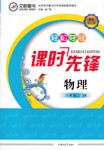题目内容
He devoted all the money he had a house of his own.
A、set up B、to set up C、to setting up D、setting up
C
【解析】
试题分析:考察固定搭配。固定搭配devote…to…把…用于…;其中的to是介词,后面要接名词或者动名词。本题考生容易受到定语从句all the money he had的影响。句义:他把他有的所有的钱都用来建自己的房子了。故C正确。
考点:考察固定搭配

 文敬图书课时先锋系列答案
文敬图书课时先锋系列答案Once upon a time, a man was walking on a mountain when he found an incredible cave with all kinds of treasure inside it. So he gave up his job, his home, and his friends, and spent all his time guarding the cave.
He was so dedicated to it that he hardly ate or drank, and before long he fell ill. One day, when he could hardly move at all, he decided to share the treasure.
He crawled(爬)into the cave to get a handful of jewels, but discovered, to his horror, that it was empty except for a small emerald(绿宝石). The man took it, and gave it to the first person he came by, a woman.
Then an old man came by. “What bad luck!” the man said. “Just a moment ago I gave a woman the last of the treasure I was guarding.”
“Are you sure there is nothing left?” the old man asked.
The man took him into the cave, where they found a chest with jewels and some bags of gold. The man was shocked, and the old man explained to him, “At last! At last someone has broken the spell(咒语)of this cave. This is the Cave of Treasure, and you’re the first to have passed its great test. Many have dedicated their lives to this cave, only to end up realizing there was nothing here…”
“And why does this happen?” the man asked.
“This magic cave has only as many riches as your own heart. When someone discovers it, the cave is filled with treasure, but later, when they have devoted themselves to guarding the treasure, their hearts empty, as does the cave. The only way to fill it is by filling your heart with all that is good, as you did by giving the woman that last jewel.”
From that day on, the man understood that it was better to share than to keep. Thanks to the cave and the old man, he became noble and generous.
【小题1】Why did the man give up his job, home and friends?
| A.Because he possessed a variety of treasure. |
| B.Because he had to guard the treasure cave. |
| C.Because he wanted to find the treasure cave. |
| D.Because he devoted himself to a great test. |
| A.A small emerald. | B.A handful of jewels. |
| C.All kinds of treasure. | D.A chest filled with jewels and some gold. |
| A.They all found the cave empty at last. |
| B.The old man freed them from its spell. |
| C.They all filled the cave with the treasure they had. |
| D.They thought it was better to share than to enjoy the treasure alone. |
| A.The old man had devoted himself to it before. |
| B.The old man was the first to break the spell. |
| C.Only the old man could free people from its spell. |
| D.The cave and the old man helped the man become noble and generous. |
| A.Purely material things cannot make us truly wealthy. |
| B.Different people have different views. |
| C.Treasure only belongs to those who possess it. |
| D.Some people never learn what is really valuable. |
Looking back on my childhood, I believe that naturalists are born and not made. Although we were all brought up in the same way, my brothers and my sisters soon gave up their flowers and insects. Unlike them, I had no ear for music and languages. I was not an early reader and I could not do maths well.
Before World War I we spent our summer holidays in Hungary. I have only the dim memory of the house we lived in, of my room and my toys. Nor do I remember clearly the large family of grandparents, aunts, uncles and cousins who gathered next door. But I do have a crystal clear memory of the dogs, farm animals, local birds, and above all, insects.
I am a naturalist, not a scientist. I have a strong love for the natural world and my passion has led me into varied explorations. I love discussing my favorite topics and enjoy burning the midnight oil reading about other people’s observations and discoveries. Then something brings these observations together in my mind. This has resulted in my publishing 300 papers and books.
But curiosity, a keen (敏锐的)eye, a good memory and enjoyment of the animal and plant world do not make a scientist. A scientist, up to a point, can be made. A naturalist is born. If you can combine the two, you get the best of both worlds.
1.The first paragraph tells us the writer .
|
A.was interested in flowers and insects in his childhood |
|
B.lost his hearing when he was a child |
|
C.didn’t like his brothers and sisters |
|
D.was born into a naturalist’s family |
2.The writer can’t clearly remember his relatives probably because .
|
A.he didn’t live very long with them |
|
B.the family was very large |
|
C.he was too young when he lived with them |
|
D.he devoted himself to observing nature |
3.It can be inferred from the passage that the writer was .
|
A.a scientist as well as a naturalist |
|
B.not a naturalist but a scientist |
|
C.only a born naturalist |
|
D.first of all a scientist |
4.According to the writer, a born naturalist should first of all be .
|
A.good at maths |
B.full of passion |
|
C.knowledgeable |
D.self-controlled |